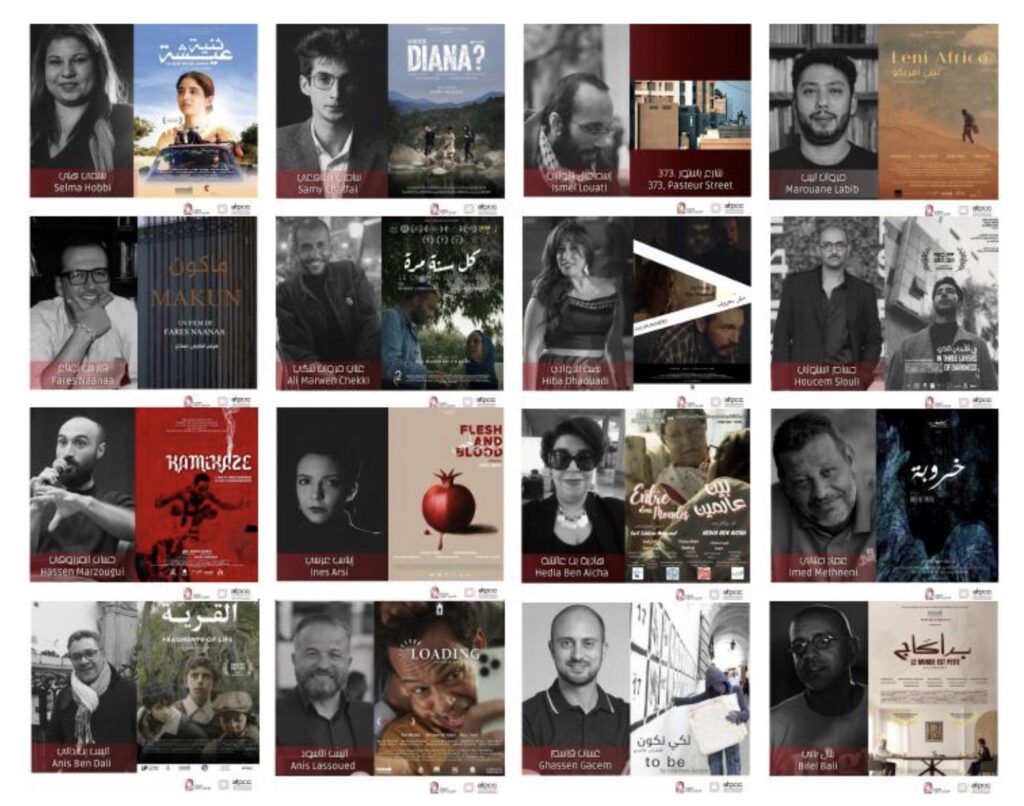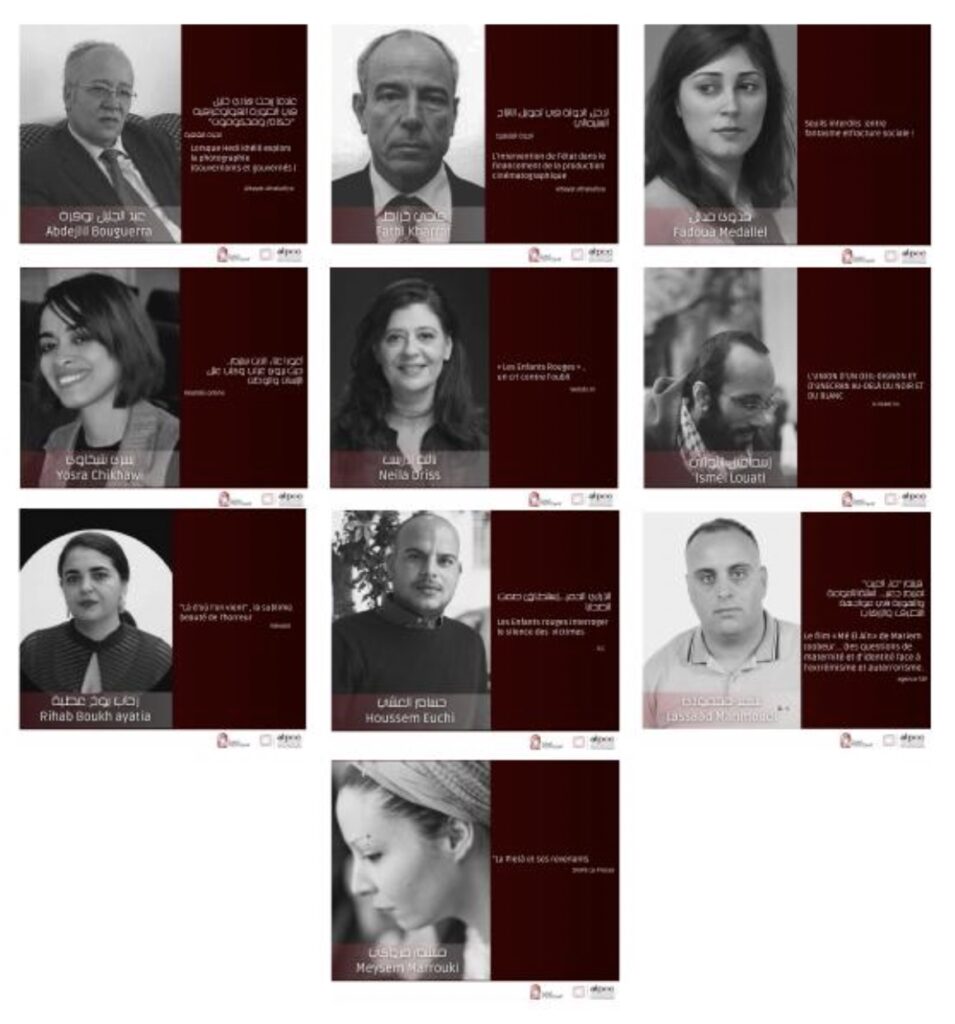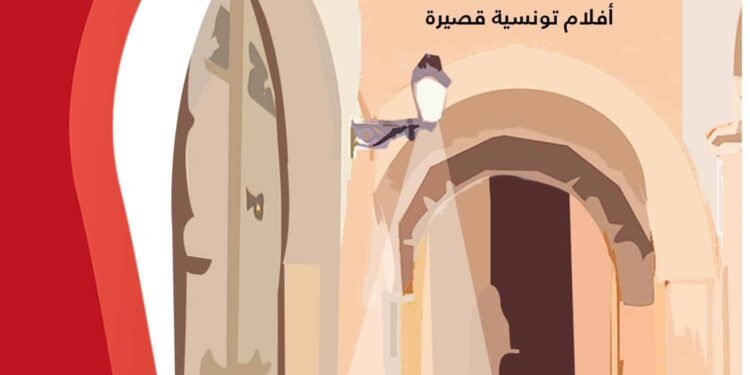From October 3 to 5, 2025, the Ibn Rachiq Cultural Center in Tunis will host the 13th edition of Tunis Tout Court, the only national festival in Tunisia dedicated exclusively to professional short films. This anniversary edition also marks the festival’s twentieth year, a milestone for an event first launched in 2005 by the Tunisian Association for the Promotion of Film Criticism (ATPCC). After a few years of interruption caused by the pandemic, the festival returns with renewed energy, determined to restore the short film format to the center of Tunisia’s cinematic landscape, while celebrating an already rich and significant journey.
Born from a strong conviction—that short films are a space of experimentation and artistic renewal—Tunis Tout Court has, over the years, become a place of recognition, dissemination, and reflection. Since its first edition in 2005, it has given young filmmakers a vital platform and fostered a fruitful dialogue between critics and creators. Now, as the ATPCC approaches its 40th anniversary, this celebratory edition of the festival promises to be a double moment: a look back at a remarkable legacy and a step forward toward new perspectives.
The 13th edition features a rich and varied program: screenings of recent Tunisian short films, a seminar and training workshop on the theme of adaptation, a competition for critical articles, debates, and lively exchanges. True to its mission, Tunis Tout Court does more than show films—it sparks reflection, interrogates aesthetic and industrial challenges, and opens up possibilities for the future.
At the heart of the festival is the official film competition, showcasing 16 short films selected from among the most notable works of 2023 and 2024. Fiction, documentary, and animation sit side by side, reflecting the vitality and diversity of emerging cinematic voices. These films will compete for four awards—Best Director, Best Screenplay, Best Technical Contribution, and Best Acting Performance—granted by a jury of critics and academics.
The 16 films in competition are:
- Leni Africo by Marouene Labib
- 373, Pasteur Street by Mohamed Ismail Louati
- Where is Diana by Samy Chaffai
- Makun by Fares Naanaa
- Le sentier de Isha by Selma Hobbi
- Loading by Anis Lassoued
- In Three Layers of Darkness by Houcem Slouli
- Aucun Numéro by Hiba Dhaouadi
- Kamikaze by Hassen Marzougui
- Le chemin de l’oubli by Ali Marwen Chekki
- To Be by Ghassen Gacem
- The Carob Tree by Imed Methneni
- Between Two Worlds by Hedia Ben Aicha
- Flesh and Blood by Inès Arsi
- Le monde est petit by Bilel Bali
- Fragments of Life by Anis Ben Dali

Alongside the film competition, the festival also honors film criticism. A competition for critical articles will award two prizes: Best Critical Article of 2023–2024 and Best Article written during the festival. With this initiative, the ATPCC underscores its role as a cultural mediator, convinced that criticism remains an essential link in cultural life, enriching debate and giving works added depth.
The 10 articles shortlisted for the 2023–2024 award are:
- RSIFF 2024 – “Les Enfants Rouges,” a Cry Against Oblivion by Neïla Driss (Webdo.tn)
- Les Enfants rouges: Questioning the Silence of Victims by Houssem Laachi (Yawmiyat al-Ayyam, Carthage Film Days 2024)
- Mé El Aïn by Mariem Joobeur: Motherhood and Identity in the Face of Extremism by Lassaad Mahmoudi (TAP)
- Agora by Ala Eddine Slim: Where the Crow and the Dog Narrate the Wounds of Man and Homeland by Yosra Chikhawi (Réalités Online)
- La Pietà and Its Ghosts by Meysem Marrouki (La Presse)
- “Là d’où l’on vient”: The Sublime Beauty of Horror by Rihab Boukhayatia (Nawaat)
- Seuils interdits: Between Fantasy and Social Fracture by Fadoua Medallel
- The Union of an Onion-Eye and a Screen Beyond Black and White by Mohamed Ismail Louati (A Ticket to)
- State Intervention in Film Production Funding by Fathi Kharrat (Al Hayat Athakafiya)
- When Hedi Khélil Explores Photography (Governors and Governed) by Abeljelil Bouguerra (Al Hayat Athakafiya)

The festival also engages in theoretical and historical reflection with a seminar devoted to literary adaptation. Entitled “At the Origins of Tunisian Short Films: Literary Adaptation as a Founding Gesture,” the seminar will analyze how Tunisia’s earliest shorts in the 1960s and 1970s drew from short stories and literary narratives as their starting point. Adaptation will be discussed as a cultural, aesthetic, and identity-based act, with its contemporary relevance examined in light of today’s intermedia hybridizations and global transformations of the moving image.
Complementing the seminar, a training workshop will bring together about ten participants to reflect on the role of criticism in analyzing adaptation and to write on a selection of shorts. This initiative confirms the festival’s educational mission, seeking to provide tools of analysis and to nurture new critical voices capable of supporting Tunisian cinema with rigor and independence.
The 2025 edition of Tunis Tout Court will also include editorial productions by the ATPCC, consistent with its publishing tradition. Recent publications on Khemaies Khayati, Jilani Saadi, and Tunisian amateur cinema testify to this commitment: Tunisian film criticism is actively writing its history and enriching the national cinematic heritage through memory and analysis.
By taking place at the Ibn Rachiq Cultural Center, an emblematic space in Tunisian cultural life, the festival reconnects with an urban and popular anchorage, accessible to both the general public and professionals. Students, researchers, critics, filmmakers, producers, and film enthusiasts will all find here a unique space for exchange and dialogue.
Through Tunis Tout Court, the ATPCC pursues a clear mission: to affirm the short film as a laboratory of ideas and forms, to support young talent, to reflect the country’s cultural diversity, to encourage public policies in favor of shorts, and to offer these films—often invisible—an international showcase. Twenty years after its creation, the festival confirms that the short film is not a secondary step, but an artistic language in its own right, vital to the cinematic ecosystem.
By combining films, criticism, publications, seminars, and workshops, Tunis Tout Court 2025 stands as a unique crossroads where the celebration of the past merges with a forward-looking vision. An edition that promises to honor two decades of existence while opening new paths for the generations to come.
Neïla Driss








